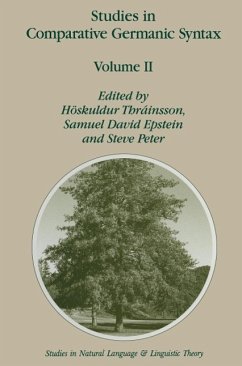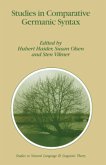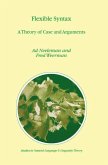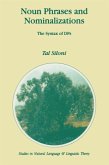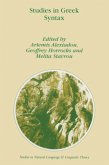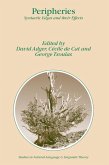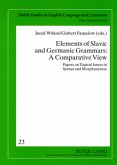O. THE CONTENTS OF THIS VOLUME AND THE FIELD OF COMPARATIVE GERMANIC SYNTAX Comparati ve synchronic and diachronic syntax has become an increasingly popular and fruitful research area over the past 10-15 years. A central reason for this is that recent developments in linguistic theory have made it possible to formulate explicit and testable hypotheses concerning syntactic universals and cross-linguistic varia tion. Here we refer to the so-called "Principles-and-Parameters" approaches (see Chomsky 1981a, 1982, 1986a, and also Williams 1987, Freidin 1991, Chomsky and Lasnik 1993, and references cited in these works). It may even be fair to say that the Government-Binding framework (first outlined by Chomsky 1981b)-a spe cific instantiation of the Principles-and-Parameters approach-has been more influential than any other theoretical syntactic framework. Since 1984, syntacticians investigating the formal properties of Germanic languages have, as an international effort, organized "workshops" on comparative Germanic syntax. The first was held at the University of Trondheim in Trondheim, Norway (1984), the second at the University of Iceland in Reykjavik, Iceland (1985), the third at the University of Abo in Abo, Finland (1986), the fourth at McGill University, Montreal, Canada (1987), the fifth in Groningen, The Nether lands (1988), the sixth in Lund, Sweden (1989), the seventh in Stuttgart, Germany (1991), the eighth in Troms~, Norway (1992), the ninth at Harvard University, Cambridge, USA (1994), the tenth at the Catholic University in Brussels, Belgium (1995), and the eleventh at Rutgers University, New Brunswick, USA (1995).
Hinweis: Dieser Artikel kann nur an eine deutsche Lieferadresse ausgeliefert werden.
Hinweis: Dieser Artikel kann nur an eine deutsche Lieferadresse ausgeliefert werden.

